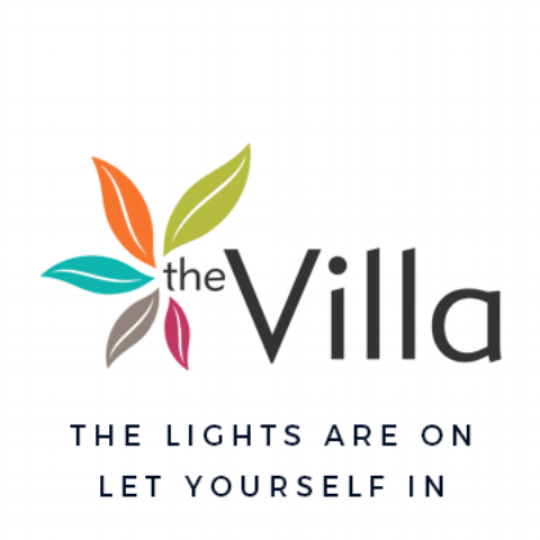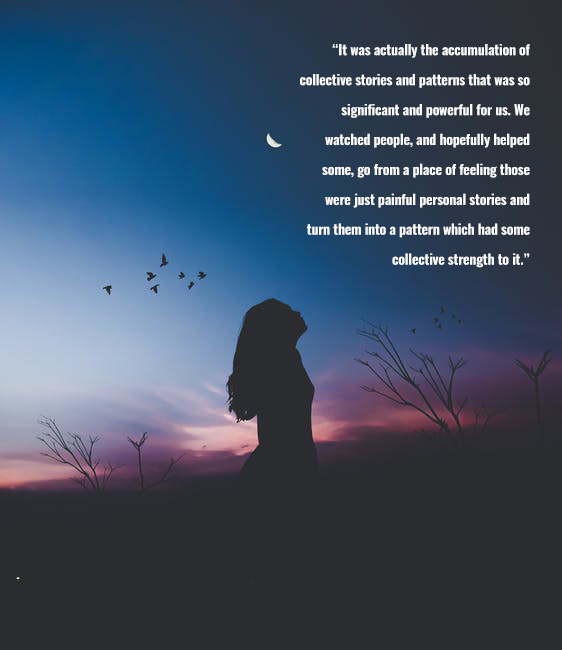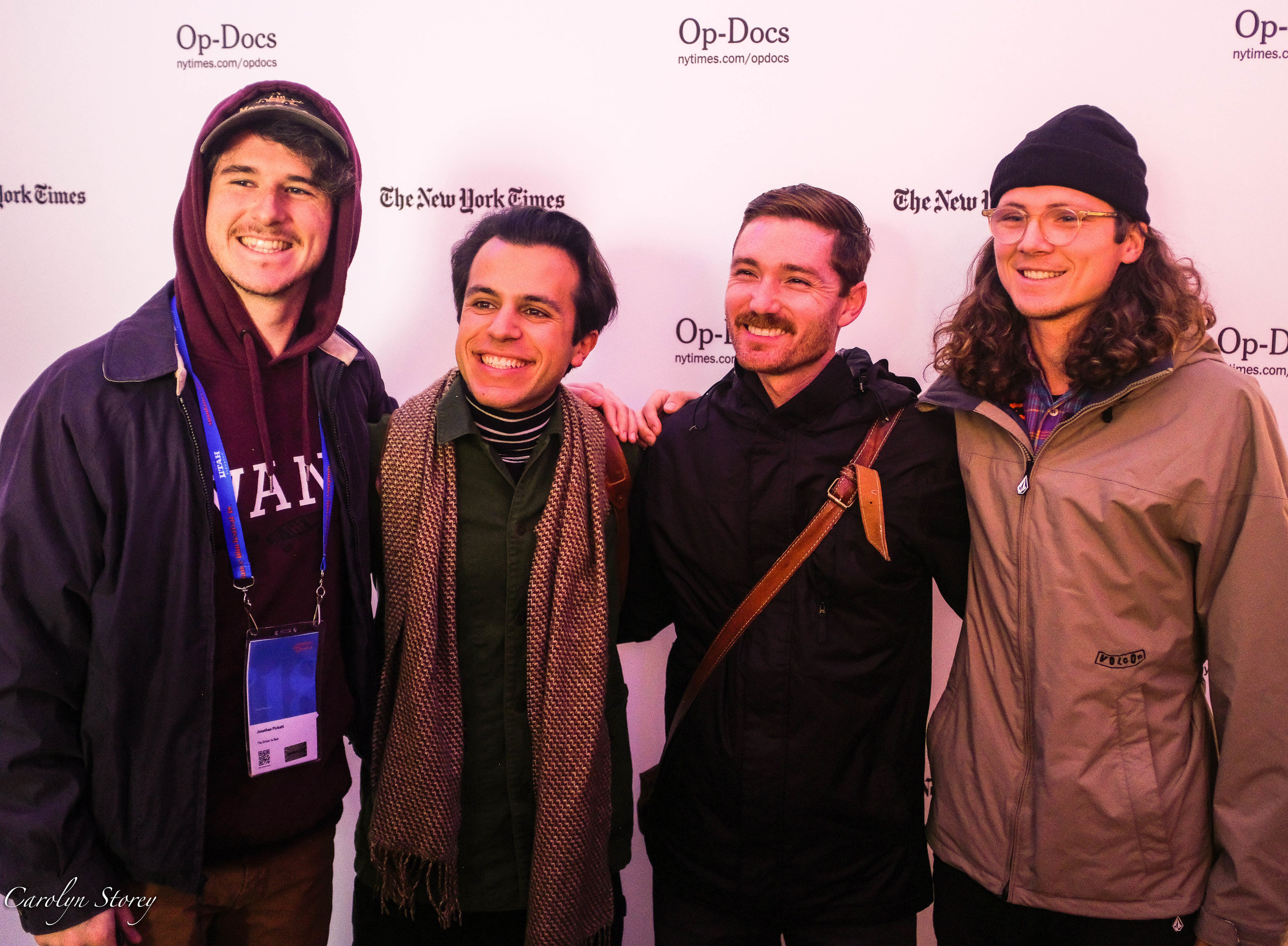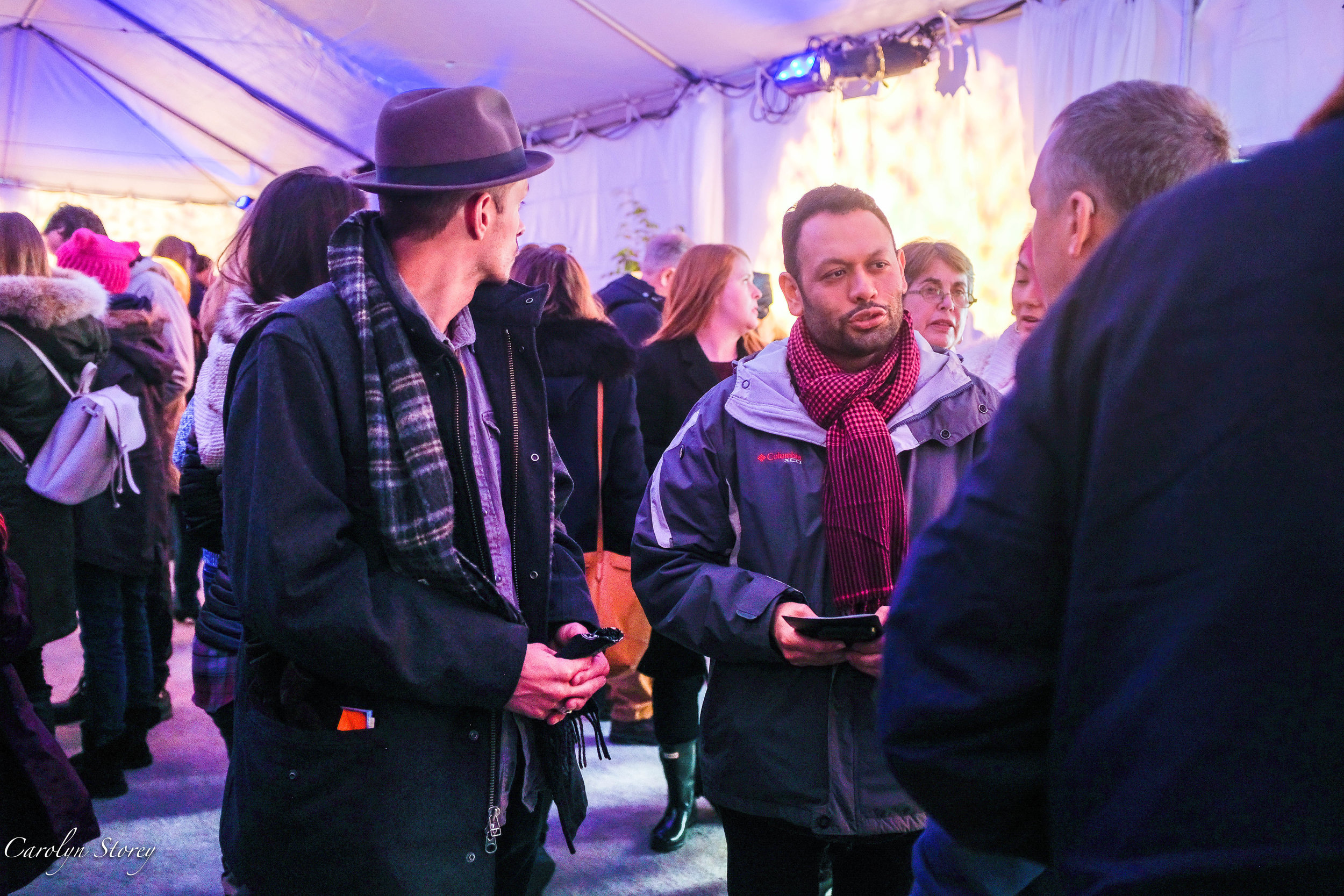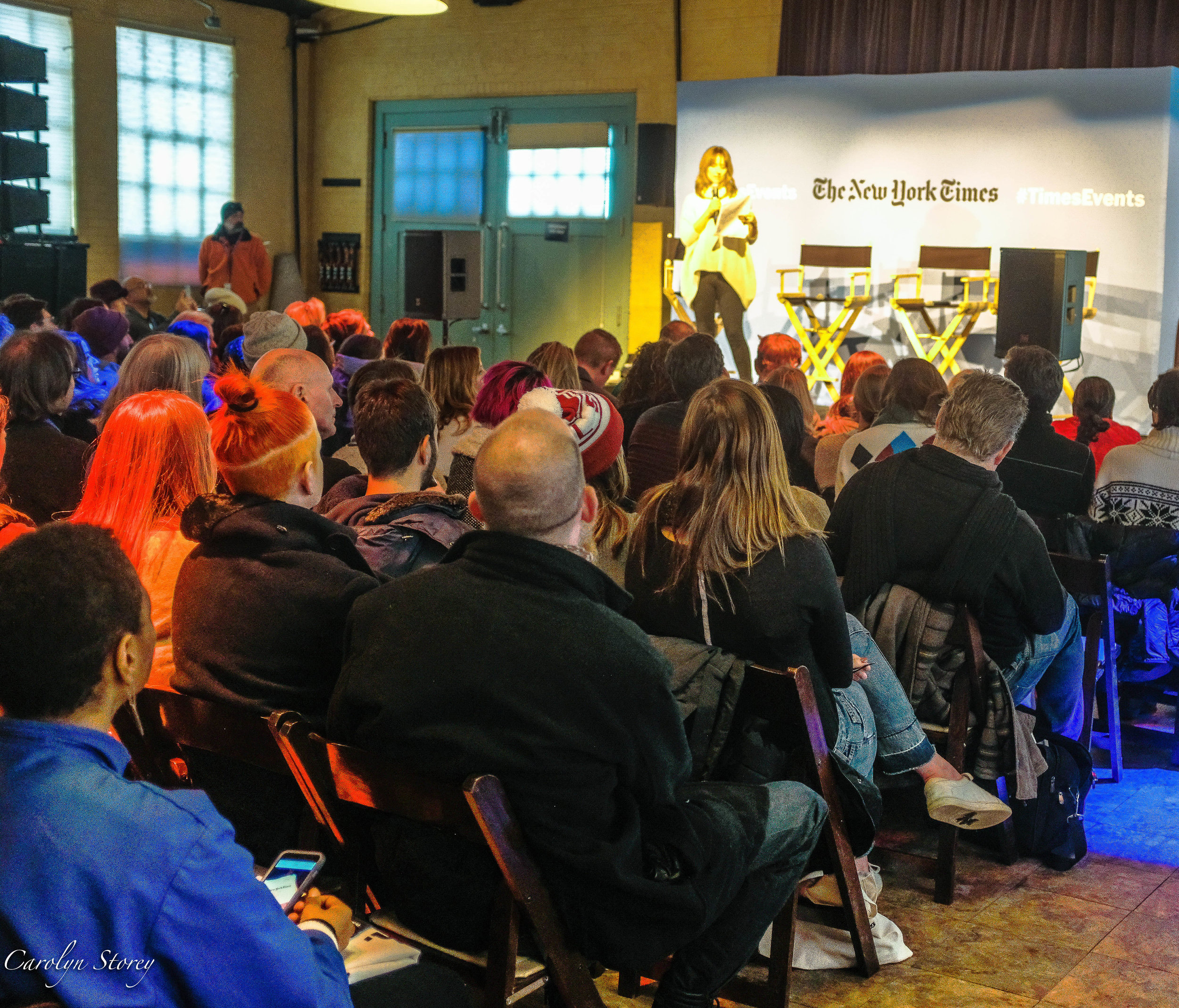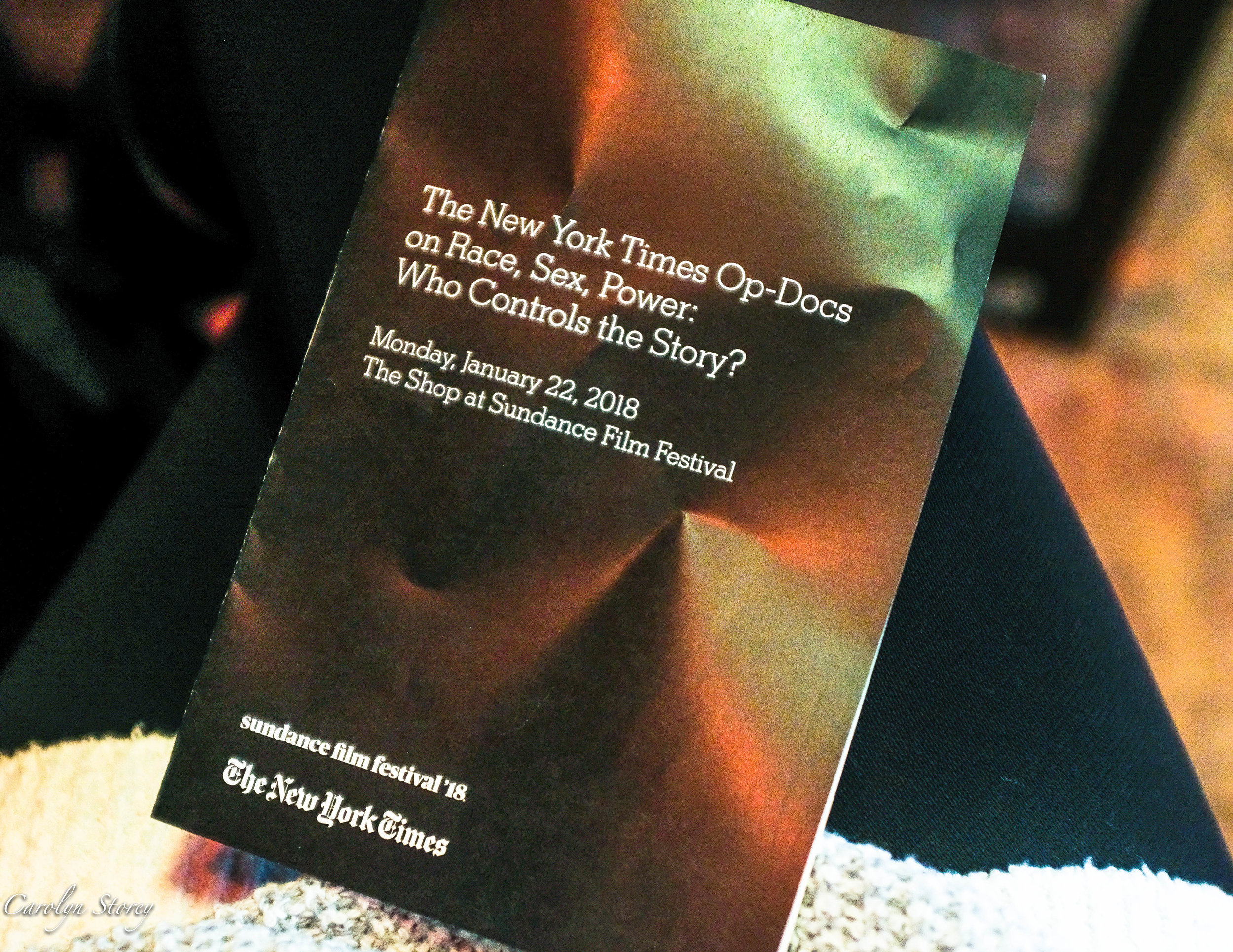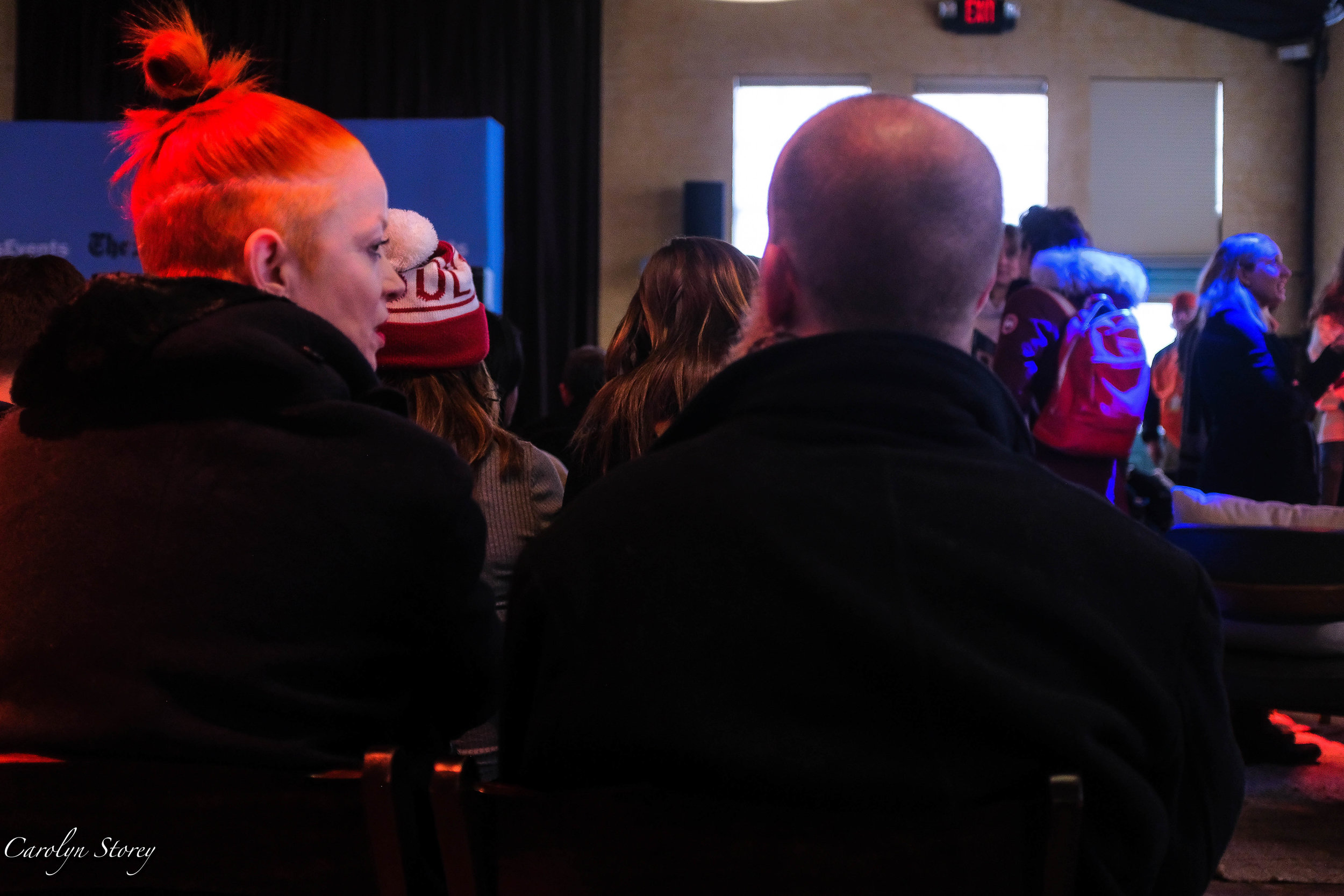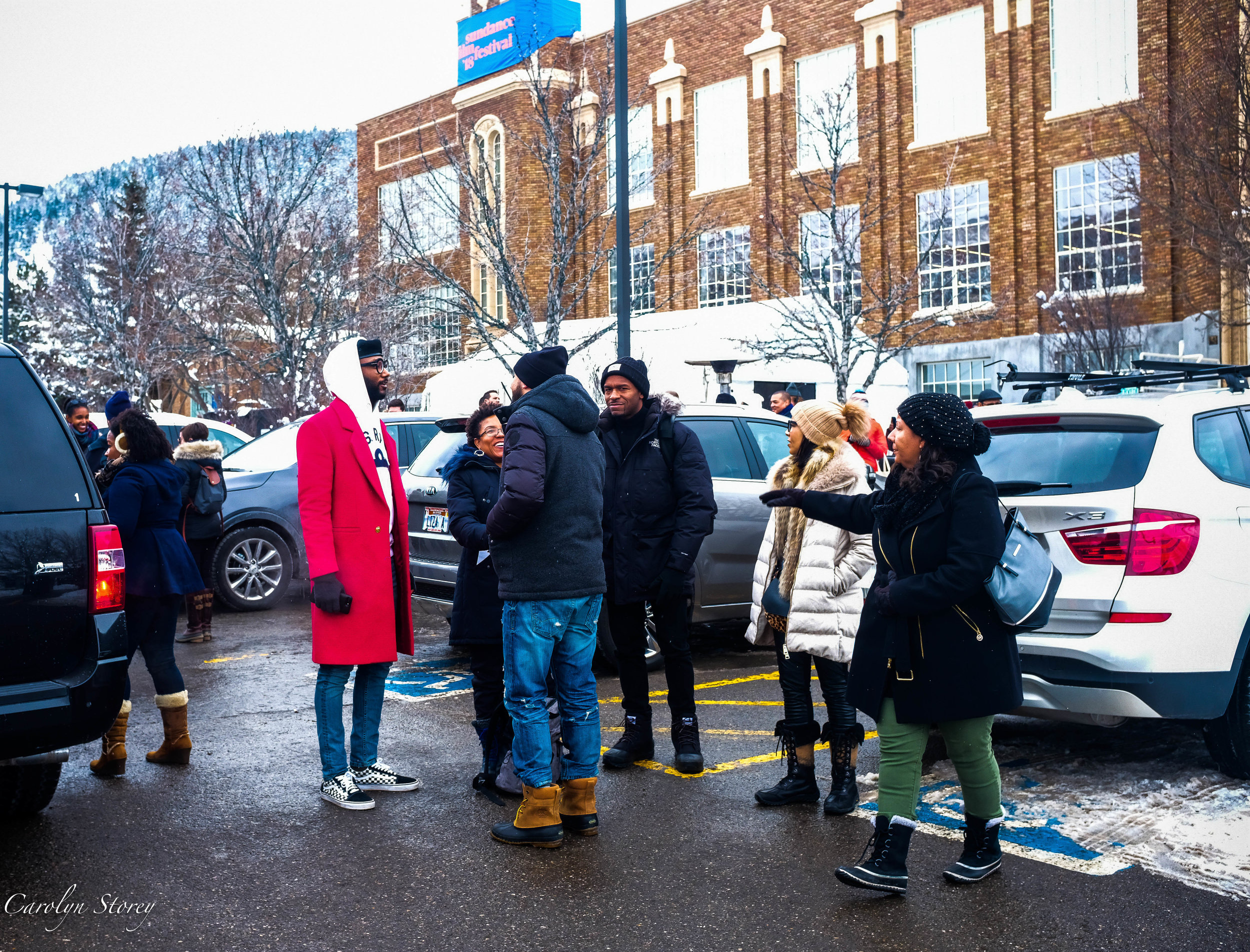Where Will Our Stories Take Us? | MERRILEE
One of the best ways we celebrate living in Utah in the cold, snowy winter is the opportunity we have to scope out what’s happening at the annual Sundance Film Festival in Park City. If you’re not familiar with Sundance, it’s an 11-day (mostly) friendly takeover of our little ski town by budding independent filmmakers, producers, screenwriters, agents, volunteers, media, movie-goers, and, of course, celebrities. People-watching is our favorite amusement; Sundance is well known for outlandish winter-wear fashion, giant puffy furs, and style categories that cannot easily be classified. (Check out Instagram’s People of Sundance.)
But Sundance is not just films, and Carol and I were lucky enough to score tickets (thanks to her NY Times subscription) to a live panel on Monday, January 22nd, sponsored by the New York Times Op-Docs on Race, Sex, Power: Who Owns the Story? We were particularly interested in going because of our focus on telling the stories of women around the world who inspire others, and model courage, innovation, and creativity in their lives and work.
The panel was hosted by Op-Docs Executive Producer, Kathleen Lingo, and included three different kinds of storytellers:
Jodi Kantor, a NY Times investigative reporter and best-selling author who has written about working conditions at Starbucks and Amazon, Harvard Business School’s attempt to change its climate for women, and the behind-the scenes life of Barack and Michelle Obama, published in her 2012 book, “The Obamas”. Ms. Kantor is most recently famous for breaking the stories, along with her colleague, Megan Twohey, about Hollywood mogul Harvey Weinstein, which has produced a landslide of attention, conversation and action against sexual harassment and sexual assault in the workplace.
Charles M. Blow, a NY Times Op-Ed columnist since 2008, and author of “Fire Shut Up in My Bones,” published in 2014. Mr. Blow has written extensively about race, sexuality, and power in American culture, with special focus on finding the deeper stories behind police brutality, force, bigotry and racially-driven treatment of black males in many regions of the U.S.
Garrett Bradley, a New-Orleans-based artist and filmmaker, specializing in both fiction and documentary work. Her most recent short documentary, “Alone”, tells the story of a young, single black mother whose fiancé has been incarcerated, and her struggle to decide whether to move forward with wedding plans, in spite of not having support from family and friends. The film won the 2017 Sundance jury award, and is now a contender for the 2018 Academy Awards.
A great deal was said in that brief hour of discussion with these insightful panelists, but three important things stuck with me:
1. The power of the individual story as well as the collective story.
Why should we tell our stories? Why do stories matter?
Ms. Kantor said that if the women who first came forward to speak publicly of their experiences with Weinstein had not had the courage to stand up, we may never have seen the unpredictable fallout and continuing discussions that are still happening 15 weeks later. She said this is unprecedented in news history, and the individual stories of these women have painted a collective story of the problems of abuse and power across many industries.
“Many who had experienced this kind of abuse had processed it as their personal story and their own private shame,” Kantor said. “They would blame themselves, and that is what kept them silent for so long.”
“It was actually the accumulation of collective stories and patterns that was so significant and powerful for us. We watched people, and hopefully helped some, go from a place of feeling those were just painful personal stories and turn them into a pattern which had some collective strength to it.”
Likewise, Mr. Blow said:
“The personal story is literally the most powerful thing a human being has.”
He recalled that following the shooting death of 17-year-old Trayvon Martin, an African American teenager killed by a neighborhood watch volunteer in Sanford, Florida in February 2012, he spoke with Trayvon’s mother every day for several weeks.
“I spoke with her only from the point of view of a parent. What are they supposed to do? How do they navigate the world now that one of their arms has been torn off? The numbers are important, but we have to remember that somebody called her on the phone that night and told her that her son was dead. That’s a parent’s worst nightmare, and every time it happens, it’s some person’s deep pain, and a story that we need to remember.”
The single story of Trayvon Martin has been repeated dozens of times in recent years, and the collective story has raised deeper questions about fear, racism, biased treatment of blacks, and the culture and attitudes that support such treatment.
2. Our stories create empathy and compassion for others’ experiences.
Garret Bradley noted that the story in her short documentary, “Alone”, of the plight of a single black mother engaged to a man who is incarcerated, may be common in some parts of the country, but may be completely off the radar for others, and is just one element of a bigger problem related to our justice system.
“The film for me was about how we deal with a chronic issue in our country--which is incarceration--from a female perspective, particularly from a woman of color, but also from the space of compassion. I was thinking if I could personalize this experience, then that’s a way to get through from a space of compassion. Perhaps through compassion, people…women…all over the country who may have conservative ideas of what incarceration is, they can connect from that space of saying, ‘Man, I’m really lonely, too, and I know what it is like to be with someone that you can’t be with,’ and that can create a sort of unifying dialogue around a political issue, a social issue, a racial issue.”
“It begs the question: Can you be compassionate without personalizing?” Bradley asked. “How do we reconcile our own problematic self-absorption and self-focus to have empathy and compassion for other people’s experiences? From an artist’s perspective, it’s a fascinating challenge.”
3. Where will our stories take us?
This idea stuck with me the hardest and piqued my curiosity, particularly with regard to our Villa blog.
Kantor acknowledged that she could not have anticipated the magnitude nor the continuing conversation on sexual harassment and sexual assault, nor the implications, firings, resignations and public callouts of the powerful men who have abused their power, without the courageous stories shared by the women who were victimized.
She said it was never her direct intent to prompt actions, policy changes or movements such as #metoo. “I’m a journalist, and not an activist,” she said. As a journalist, Kantor believes her job is to research and write the story, and let the story carry the powerful message.
Charles Blow concurred. “I steer far away from being an activist,” he said. “As an opinion writer, I share my point of view, but I don’t tell people what they should do.”
Each of the panelists agreed that the power of the story—individual and collective—is what shapes our history, our culture, and our future, and that is why our stories matter.
Carol and I left the venue buzzing with excitement and many questions. Since we started The Villa Blog just under a year ago, we’ve grappled with many challenges and questions, and had our own stops and starts in the journey.
What is our purpose, and what is our deep and passionate reason for telling stories? Who is our audience? Are we activists? Are we advocates? Or are we simply storytellers? Who will read our in-depth Aluminaria stories? Do our readers have the attention span to read all the way to the end? Who will read the Spotlights? Is anyone reading this post now, and how will we know?
But ultimately, where will our Villa stories take us?
Do you have a story to tell? Is there a person, a moment, a challenge, or a success that has inspired and empowered you in your life?
YOUR STORY IS POWERFUL.
We must collectively speak up and share in order to connect to and empower ourselves and those around us. Our goal here at The Villa is to provide a platform for women like YOU to share YOUR story in a way that gives your voice the power to impact, connect, and inspire. Share your story with us! Send us an email below and get in touch to join the movement and make a difference.
XOXO,
Your Villa Storytellers
